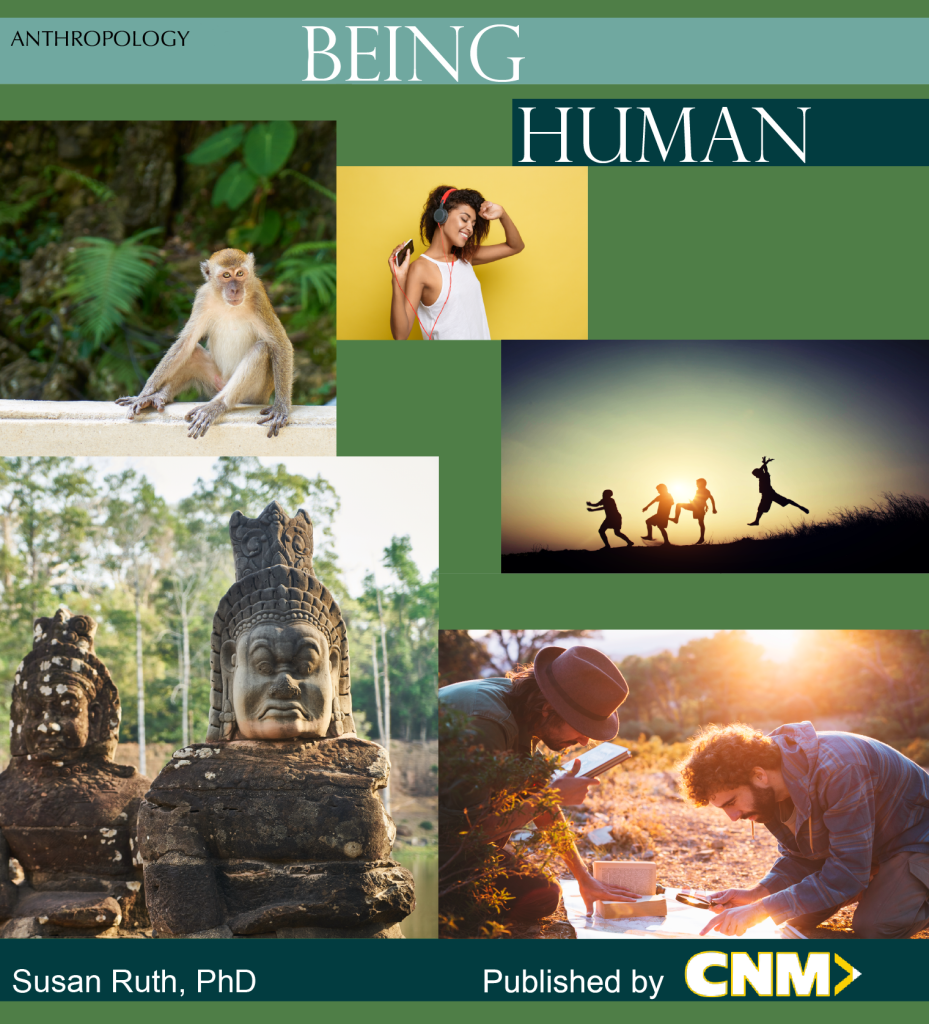Featured Video
Changing the way you learn
Dive into affordable and accessible learning with Open Educational Textbooks. Unlock a world of knowledge, collaboration, and empowerment as you embrace equitable education for all.

Featured Book
Anthropology: Being Human By Susan Ruth, PhD
Explore the rich tapestry of human existence through ‘Anthropology: Being Human’ by Susan Ruth, Ph.D. Delve into the diverse cultures, histories, and behaviors that define our species in this insightful and thought-provoking journey.
Open educational resources (OER) are teaching, learning, and research resources in the public domain or released
with an open license (e.g., Creative Commons license).
Anyone can freely use, copy, adapt, and reshare OER. Opencontent.org states that true OER are free to access and allow for the 5R’s of open content:
• Retain: make, own, and control copies of the content
• Reuse: use the content in a wide range of ways
• Revise: adapt, adjust, modify, or alter the content itself
• Remix: combine original or revised content with other material to create something new
• Redistribute: share copies of the original content, revisions, or remixes with others
• All kinds of materials can be released as OER. A few examples include:
All kinds of materials can be released as OER. A few examples include:
• Textbooks and lecture notes
• Syllabi and full courses
• Test questions and assignments
• Software, videos, and game
- Students save an average of $65-$116 per course when an OER is used.
- Affordability of materials plays a significant role in college progression: Students are less likely to drop a course when OERs are used.
- OERs are easy to use and accessible to students right away.
- Students feel more engaged and motivated when the material is relevant and meaningful.
- Many students find that OERs are similar to or of higher quality than standard textbooks.
- Many OERs are adaptable to meet the needs of your course and students. This means that content can be shared with a wider audience.
Free access doesn’t always equate to OER. While UA users can freely access the library’s licensed ebooks, those are copyrighted with all rights reserved and not OER.
To be OER, materials must be free to access AND give users the freedom to retain, reuse, revise, remix, and redistribute the content.
These permissions are usually granted by a Creative Commons license or because a resource is in the public domain.
The six different Creative Commons licenses tell users exactly what they’re allowed to do with the content.
OER can’t have an ND (No Derivatives) element in the Creative Commons license because that doesn’t allow revisions to be shared.
ND content is still free to use, but it can’t be customized.
Remixing OER that have different Creative Commons licenses can be tricky. A Creative Commons chart shows which remixes are allowed.
Also keep in mind that some content collections, such as MERLOT, have a mixture of OER and free resources. Check individual licenses.
If you have Creative Commons questions, contact Open Education Librarian about copyright.
Open textbook Websites
Search/browse these recommended sites for free online textbooks that can be customized:
Open Textbook Library
Features more than 1,100 complete open textbooks in a range of subjects. Most have faculty-authored reviews. You can also see textbook topics in development.
Pressbooks Directory
Features more than 3,000 open textbooks published on the Pressbooks platform. Content can be cloned in our UA Pressbooks platform and customized
for a UA audience.
OpenStax
Offers college-level, peer-reviewed textbooks in math/statistics, science, sociology, psychology, business, economics, history, and American government,
plus Advanced Placement titles. OpenStax textbooks are included in the Open Textbook Library, but this site provides additional free resources for instructors,
such as PowerPoint slides and solutions to end-of-chapter problems. Optional courseware is available at an additional cost.
OER Commons
Can be browsed by grade level, subject area, and material type. The Open Author tool lets instructors combine text, pictures, sound, files, and video.
We recommend checking out the OER Guidebook for additional information if you want to utilize or develop open educational resources.
CNM Libraries eResources
eBook Essentials
Everything you need to know about searching, accessing titles, and downloading to your device!
Were you aware that CNM Libraries boasts an extensive collection of eBooks, numbering in the hundreds of thousands? Follow this guide to access, download, and read these titles offline effortlessly.
This guide will focus on eBooks from two specific collections, EBSCO and the O’Reilly Safari Platform.
Ask a librarian if you would like help learning more about eBooks.
